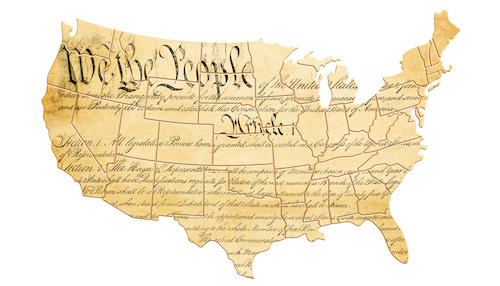
The late Larry King left a secret will, dividing his estate evenly between his three children. Angry, his estranged wife is contesting the will. A will or trust contest could derail your final wishes. What’s more, it can rapidly deplete your estate. As a result, your loved ones may argue to the point of being torn apart. However, with proper planning, you can prevent a contested estate.
What is a Contested Estate?

People contest a will or trust to object to the validity of the estate. If someone successfully contests an estate, the court “throws out” the will or trust. With a previous will or trust, those terms exert control. But no other estate planning documents exist, the state’s laws of intestacy engage. A contested estate typically proves disastrous for intended beneficiaries.
Who Can Contest a Will or Trust?

The only person with legal “standing” to file a lawsuit can contest the same. Standing means that a party involved in a lawsuit could affect the outcome of the case.
The following people possess legal standing to question the validity of a will or trust:
- Disinherited or disadvantaged heirs at law. Family members eligible to inherit or who would inherit more under applicable state law if the deceased person failed to draft a valid will or trust.
- Disinherited or disadvantaged beneficiaries. This includes family, friends, and charities named or given a larger bequest in a prior will or trust.

Planning Tip
Not everyone involved in your life possesses legal standing to challenge the validity of your estate plan. For example, even if a friend or business associate suspects that your will or trust is invalid, they may not have standing to contest it (unless they are your heir at law or named in your prior will or trust).
When to File a Will or Trust Contest

A handful of states’ laws allow residents to establish the validity of their estate plan before they die. This pre-death validation process allows someone to confirm their estate planning decisions while they remain capable of defending them. This bars challenges to the plan after they die. The laws and rules of a state in which probate is filed determine time limit and procedures for a contested estate. With regard to trusts, the contestation time frame varies greatly from state to state. In some states, heirs may be limited to as little as a few months to contest a trust. On the other hand, in other states, the time frame can extend to a few years.
What Are the Legal Grounds for Contesting a Will or Trust?

In general, four grounds exist to challenge the validity of a will or trust:
- Signing of the will or trust failed to meet state laws.
Each state follows specific laws which dictate the way a will or trust must be signed to be deemed legally valid. (Usually, wills not entirely written by hand must be signed in the presence of two witnesses who meet certain requirements). - The person making the will or trust lacked necessary capacity.
The capacity to make a will means that the person understands (a) their assets, (b) their family relationships, and (c) the legal effect of signing a will. Each state’s laws set the threshold to prove that a person lacked sufficient mental capacity to sign a will. Some states apply the same standard to establishing a trust. While others apply the standards for capacity to make a contract (understand the purpose and effect of the contract). - Someone unduly influenced the person making the will or trust.
As people age, they grow weaker both physically and mentally. Others may exert influence over decisions, including how to plan their estate. Undue influence may apply to the young and the not-so-young. In the context of a will or trust contest, undue influence means more than just nagging or verbal threats. The severity of the influence must cause the person to give in and change their estate plan to favor the undue influencer. - Procuring the will or trust by fraud.
This includes a will wherein the signee believed they were signing something other than their will.

Planning Tip
While many assume that a will or trust signed in an attorney’s office is valid, such is not always the case. Attorneys who do not specialize in estate planning may be unfamiliar with the formalities required to make a will or trust legally valid in their state. Therefore, work with an attorney familiar with the estate planning laws of your state. Ensuring protection over an estate plan is particularly important if you wish to disinherit or favor one part of your family.
About Skvarna Law in Glendora and Upland, California

Skvarna Law Firm operates offices in Glendora and Upland, California. We provide legal services. We cover San Bernardino, Los Angeles, Orange, and Riverside Counties. This includes several cities. Upland, Ontario, Rancho Cucamonga, Fontana, Colton, Rialto, Chino, Chino Hills, Glendora, Claremont, Pomona, La Verne, Montclair, San Dimas, Azusa, Covina, West Covina, Diamond Bar, Walnut, La Puente, Corona, Norco & Mira Loma. Visit SkvarnaLaw.com to learn more.


